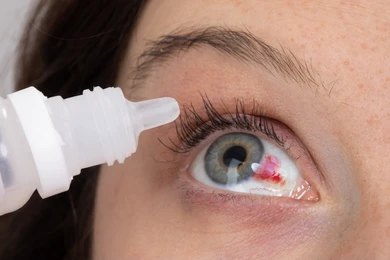Maintaining healthy eyes and clear vision is essential for a good quality of life, but various conditions can impact eyesight as we age or due to lifestyle factors. Fortunately, advancements in eye care offer effective treatments for a range of vision issues. From corrective surgeries to simple lifestyle changes, here are the top treatments that can help improve vision and overall eye health.
1. LASIK Laser Eye Surgery
LASIK, or Laser-Assisted In Situ Keratomileusis, is one of the most popular eye surgeries for vision correction. This procedure reshapes the cornea to correct common vision problems like nearsightedness, farsightedness, and astigmatism.
- How It Works: LASIK uses a specialized laser to gently reshape the cornea, allowing light to focus correctly on the retina for clearer vision.
- Suitability: Ideal for those who are over 18, have stable vision, and suffer from refractive errors.
- Recovery: LASIK is a quick outpatient procedure with minimal downtime; most patients see results within 24 hours.
LASIK is highly effective, providing a long-term solution to reduce or eliminate dependence on glasses or contacts.
2. Cataract Surgery
Cataracts, a common age-related condition, cause clouding of the eye’s natural lens, leading to blurry vision. Cataract surgery is the only way to remove cataracts and restore clear vision.
- How It Works: During cataract surgery, the cloudy lens is removed and replaced with an artificial lens (IOL).
- Suitability: Cataract surgery is suitable for most individuals with significant vision impairment due to cataracts.
- Recovery: Cataract surgery has a high success rate with a quick recovery period, often leading to significant improvements in vision.
Early intervention can prevent cataracts from severely affecting vision, making it crucial to monitor eye health as we age.
3. Treatment for Dry Eye Syndrome
Dry eye syndrome occurs when the eyes do not produce enough tears or the right type of tears to stay hydrated, leading to irritation, discomfort, and blurry vision. Several non-surgical treatments can help manage this condition.
- Artificial Tears: Over-the-counter lubricating eye drops can provide temporary relief from dryness.
- Lifestyle Adjustments: Simple changes, such as using a humidifier, reducing screen time, and taking regular breaks, can help alleviate symptoms.
- Prescription Treatments: For more severe cases, eye doctors may prescribe anti-inflammatory medications or specialized eye drops that increase tear production.
Effective management of dry eyes can greatly improve comfort and prevent further eye issues.
4. Orthokeratology (Ortho-K)
Ortho-K is a non-surgical procedure involving specially designed contact lenses that temporarily reshape the cornea overnight. It’s particularly effective for correcting nearsightedness (myopia) and can help prevent its progression in children and young adults.
- How It Works: Ortho-K lenses gently reshape the cornea while you sleep. In the morning, the lenses are removed, and you can enjoy clear vision throughout the day without glasses or contacts.
- Suitability: Ortho-K is suitable for both children and adults with mild to moderate nearsightedness.
- Benefits: Provides daytime freedom from glasses or contacts, making it ideal for sports and other activities.
Ortho-K is an innovative alternative for those who aren’t ready for LASIK or who want a reversible solution for nearsightedness.
5. Advanced Glasses and Contact Lenses
Sometimes, the simplest solutions can be the most effective. High-quality glasses and contact lenses with features like anti-reflective coatings or blue light filtering can make a significant difference in eye comfort and health.
- Anti-Reflective Coatings: Reduce glare from screens and bright lights, minimizing eye strain.
- Blue Light Filtering: Ideal for those who spend a lot of time on digital devices, blue light filters help reduce the impact of screen exposure on eyes.
- Customized Lenses: Specialized lenses can address specific vision needs, such as progressive lenses for age-related vision issues.
While these may not be treatments in the traditional sense, advanced eyewear can reduce symptoms like eye strain and headaches, enhancing day-to-day comfort.
When to See an Eye Specialist
Regular eye exams are essential, even if you’re not experiencing symptoms. Eye specialists can detect early signs of diseases like glaucoma, macular degeneration, and diabetic retinopathy that may not show symptoms initially. For those in Lucknow, best eye hospital in Lucknow is recognized for its comprehensive eye care and expert services.
FAQs
1. How often should I get an eye exam?
It’s generally recommended to have an eye exam every 1-2 years. However, those with a family history of eye conditions or other risk factors may need more frequent check-ups.
2. Can I undergo LASIK if I have dry eyes?
Individuals with dry eyes may still be eligible for LASIK, but they should consult with an eye doctor to discuss their specific condition. Pre-treatment for dry eyes can often improve LASIK outcomes.
3. Is cataract surgery safe?
Yes, cataract surgery is one of the safest and most effective eye surgeries, with a high success rate. Complications are rare, and recovery is usually swift.
4. Are blue light filters on glasses effective?
Yes, blue light filters can reduce eye strain and fatigue for those who spend long hours on digital screens, helping to protect eye health in the long term.
Conclusion
Whether you’re dealing with vision impairment, discomfort, or age-related changes, there are various treatments available to improve eye health. From surgeries like LASIK and cataract removal to non-surgical options like advanced eyewear and dry eye management, the right treatment can enhance your quality of life. Regular eye exams and early intervention are essential, so consider scheduling a check-up with a trusted specialist, especially if you notice changes in your vision or eye health.




